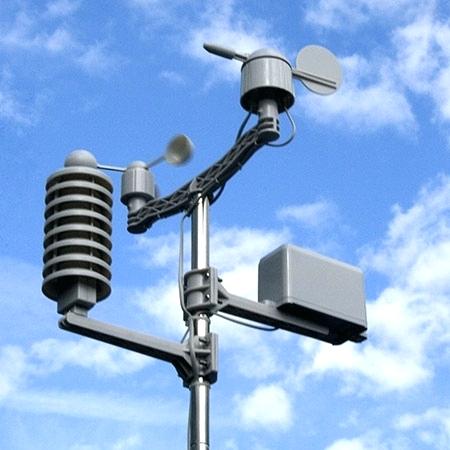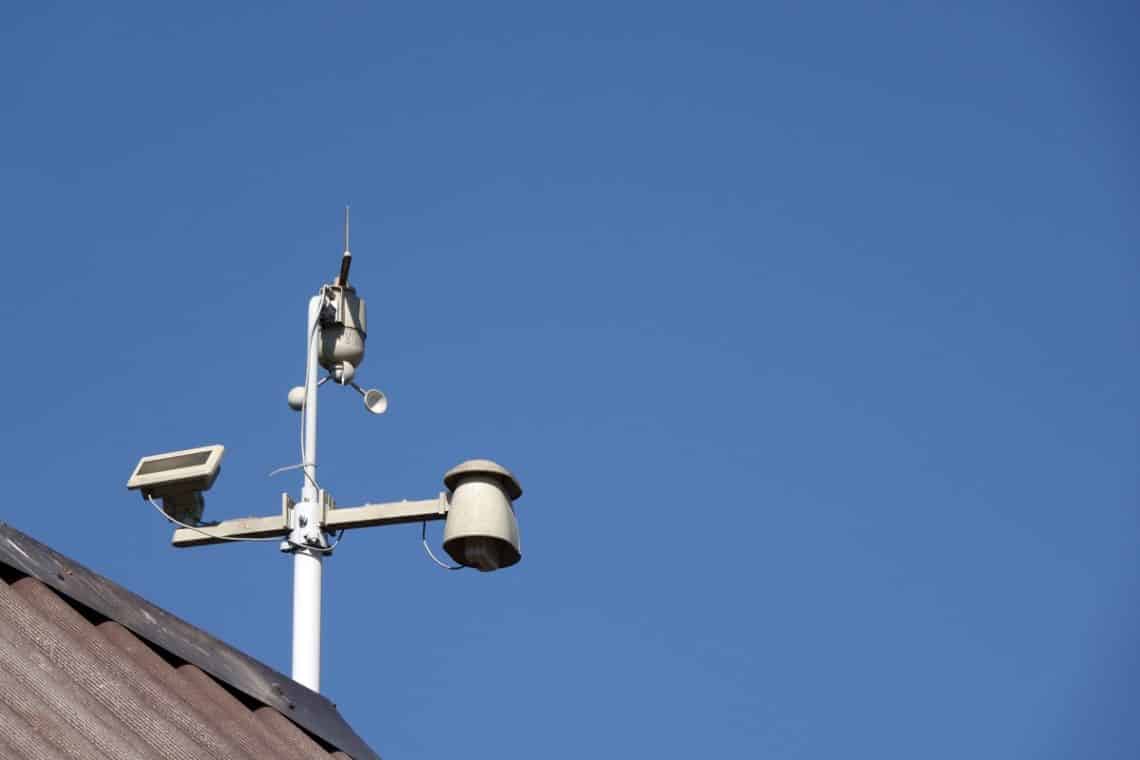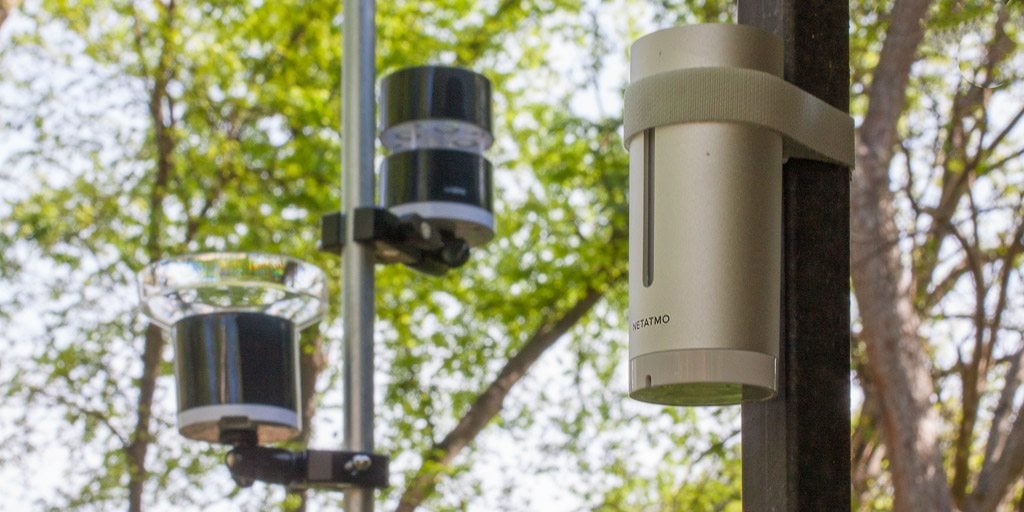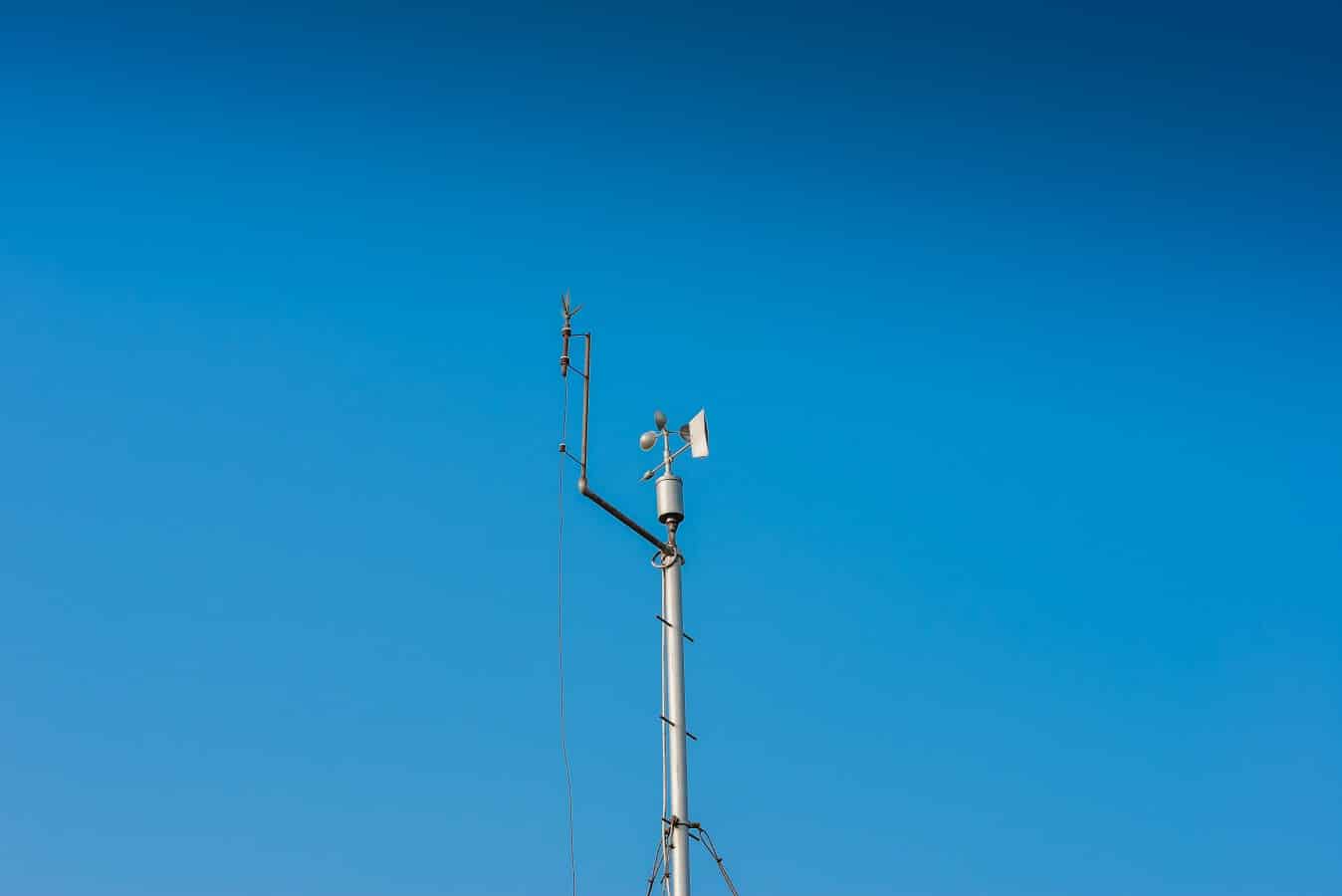It might look like the sky is clear today, but who knows whether it will rain two hours from now or not. You might argue saying that weather apps on your smartphone are enough to keep you updated.
But how can you be sure that they are entirely correct? After all, the weather stations are located far away from your place.
Fortunately, getting highly accurate local weather information is not a challenge anymore in the contemporary world. How, you ask? The answer – ionons.
Not only are they equipped with sensors for tracking local wind, air pressure, rainfall, and UV levels in real-time, but they can also generate custom forecasts.
Some of the newly engineered models can be connected to the operation of other household products as per the local conditions.
Want to know more about it? Of course you do! That’s why you are here, aren’t you?
Well, just read along till the end!
What a Home Weather Station Can Do

-
Hyperlocal forecasts
If you want general information about the weather, a number of weather apps can give you a clear picture of what you can expect. But when it comes to checking the local weather forecasts, nothing does justice like a personal weather station.
Most of the weather stations and apps tend to pull out information from just one location, be it from the airport, subway station, a park nearby, etc.
When most of these places are miles away from your home, you know that you can’t depend on the data even a mere 50%. This implies that for accurate forecasts, nothing can easily replace the efficiency of a home weather station.
And the best part, Weather Underground, also claims that for giving a round figure to the public, it draws information from more than 250,000 personal weather stations.
Therefore, when you have a home weather station, you can register for this free service as well. This will help provide local forecasts based on the data that has been sampled in your home.
-
Automate things inside the house
Having a smart weather station can help you control the gadgets inside the house. When the sensors detect rain, it triggers the lights to turn on. And when it’s sunny again, the weather station can dim or turn off the lights depending on the temperature outside.
For increased indoor comfort, you’ll find units that can kick start your thermostat when there is an increase in the temperature and humidity levels. Plus, weather stations can also forecast energy savings, which is an added advantage.
For instance, when the sun sets during the fall and spring seasons, it’s natural for most homes to require heat in the evening. The house might be pretty cold even in the morning, and that calls you to have your heaters switched on throughout the day. In case of warm outdoor temperatures, you can open the windows to get the home heated naturally.
Further, on checking the weather report, you’ll be able to save energy on heating. It can be done by integrating the weather data with an automation system.
So, when the forecasts show signals of warm temperature, the automation system works efficiently to set back your thermostat to energy-saving levels. This allows the sun to heat your home naturally.
-
Personal alerts
It’s not surprising when we say that wide fluctuations in the weather can broadly impact your home as well as your health. With a smart weather station, you will be better prepared for extreme weather conditions. An intelligent home weather station can send weather alerts via a mobile app, as soon as it detects severe cold or heat.
You’ll be aware of the exact time period when the temperature drops to below freezing level. This helps you prevent the water pipes from freezing and possibly bursting when the ice melts.
So, as you receive the extreme cold alert signal, you’ll be knowing exactly when to shut down the water flow to the outdoor faucets during winters.
High winds can also be hazardous. And receiving alerts about strong winds on time will prevent loss of property.
It’s equally applicable when temperatures rise to beyond tolerance level. The alerts will help you take better care of your plants and to shelter pets that are sensitive to severe heat waves. And since you’ll be receiving your alerts on time, you can protect the plants by spraying them with a leaf-cooling mist.
-
Rain delays
This is one of the essential factors that we generally look for while scrolling down the weather alerts. It helps you understand whether you need to water the plants or not.
You can also use the daily reports of the actual rainfall totals to shut down the irrigation systems when it’s about to rain in a few hours. Thankfully, most irrigation controllers are equipped with sensor input. So, when the automation system knows it has rained or is raining, it can trigger the connected irrigation system to stop functioning.

Home Weather Station Benefits
-
For better outdoor plans
For those people who love to participate in outdoor activities, you can mark the calendar according to the data on a home weather station. Your home devices can accurately calculate wind chill, dew point, and heat index to help you determine the forecast ahead. This helps you to make your plans according to the weather conditions.
For instance, if you’re having a summer barbecue party in your backyard for dinner, then you can check the reports to ensure that the weather is on point. The home weather station is usually customized to the area that you live in, which eliminates the guessing game.
On top of that, you don’t need to make assumptions or even cancel events due to potential weather warnings that might not also apply to your area. With your smart home weather station, the weather won’t stop you or your family from enjoying life outdoors.
-
Great investment
A weather station is considered to be one of the most durable devices that have been designed to collect data about the weather forecast in your area using multiple sensors. This instrument can either be digital or analog technology, depending on what suits your requirements.
The collected data is further processed within the software that analyzes the information into your phone, tablet, or computer. Before finalizing on a model you want to purchase, you need to be sure about its usage. You should mainly consider what type of information you want the weather station to collect for your business or home.
If a home weather station is too expensive for you, then consider an indoor outdoor thermometer instead. With an inexpensive indoor outdoor thermometer, you’ll get the basic information, including temperature, humidity, and barometric pressure. Some indoor outdoor thermometers can even provide a forecast, but unfortunately, their accuracy is not up to the same standard as a professional weather station. When it comes to the professional weather stations that are more expensive, they can collect similar data along with rainfall, wind speed, and wind direction. These high-end models are equipped with additional sensors that make them more efficient and more precise.
The update interval also differs from one unit to another, for some devices it might take every five minutes, while others may update every second. Best of all, once you have the personal weather station installed, it will function with minimal maintenance and deliver a hassle-free experience.
-
Accuracy and dependability
When you collect your weather information from TV, the meteorologist generally focuses on a large area. This can be an entire region, city, or even a country, which might not give you the most accurate information that you’re looking for.
With a personal weather station, you can keep track of the weather in your specific area. Thus, the report will mainly focus on the area around your home. It keeps you informed about any dangerous weather conditions. This reliable monitoring device has been carefully built inside a self-contained, easy-to-install system.
A few devices might include a large console and a sleek yet sturdy outdoor integrated sensor that is sold as a complete package. Depending on the model you choose, the setup can take longer for the wired devices and only a few minutes for the wireless ones.
Besides that, a home weather station gives you the ability to keep your family safe from harsh weather conditions. It provides well-informed reports even when you don’t have access to online weather sources or TV. Also, if there is a power shortage in your home, you can still get an update from your home weather station.
It comes with an optional battery backup system that can last a maximum of 2 years. This is indeed a suitable way to combat technical glitches with computers, TVs, and cell phones. In the end, owning a weather station keeps you informed immediately with some of the most accurate information that you can get about the weather.
-
Be your personal meteorologist
For most of us, good weather is the key to having a great day. This makes it essential to have the most up-to-date information about the forecasts. The local news channels and smartphone weather apps are some of the oldest methods of collecting data.
But with the advent of technology, you’ve got a much better option, and it’s the home weather station that functions more like a personalized weather channel.
Having a weather station can be highly beneficial for people who depend on natural weather conditions for their everyday lives like cattle herders, farmers, weather enthusiasts, etc. You can use this device for professional as well as recreational purposes.
By syncing your weather station to any device, be it your smartphone or computer, you can view the data anywhere. But you should have proper access to the internet to receive the updates. This can be a significant benefit, especially when you’re traveling, and you want to have an accurate update about the weather back home.
The information helps you make sure that your home is safe and not in any danger due to wind, storm, or other adverse elements of the forecast.
As mentioned above, the weather station can capture a wide range of data from barometric pressure to wind speed using sensors. While selecting a unit, you need to consider essential factors such as transmission distance, accuracy, connectivity, and more.
-
Contributing to a weather network
As you might already know, there are over 250,000 weather stations all across the world.
It has a great base with a worldwide group of weather enthusiasts who generally enjoy sharing the data that has been collected from their weather stations. This elaborate data collection method provides the ultimate experience by enriching the future of weather forecasts on a global community platform.
So, when you become a member of this well-known network of weather stations, you’ll be contributing your local information like many others. The data is further linked to global sensors to create more accurate weather forecasts for everyone as a whole.
Moreover, the network also stores all your shared data in the archive section, which allows you to check what you had sent earlier. Overall, it’s a win-win situation for all the users that are part of the worldwide weather network.

Final Words
Having the most accurate information about the weather is easy when you have a home weather station installed. It keeps you safe throughout different weather conditions by providing accurate data about the days ahead too.
Since it comes with low maintenance and provides long-term data options, it makes for a suitable investment for evaluating the potential weather conditions that lie ahead.
And the next time you plan for an outdoor activity, you won’t be left disappointed with bad weather. So, what are you waiting for? Go ahead and check your weather station for the most recent update.
Till next time!



